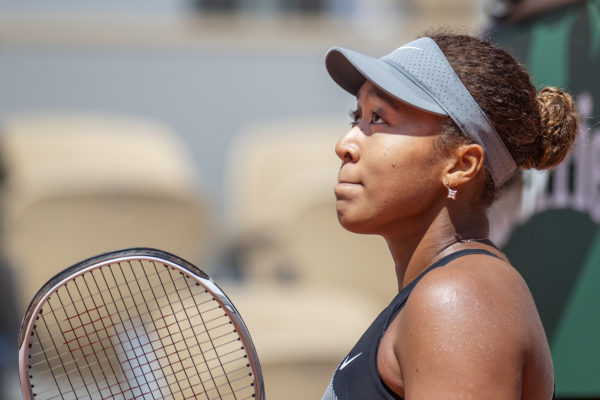Tennis star Naomi Osaka has always been vocal about her pride for both her Haitian and Japanese heritages, and she’s lived in the United States since she was three, so when it came time to pick a country to represent in the 2020 Tokyo Olympics, fans might have assumed any of those nations was fair game. Still, she revealed during a recent episode of her new self-titled docuseries that it came as a surprise to the Japanese-born champion that she received backlash for choosing to represent Japan instead of the USA in the upcoming Tokyo Olympics.
However, Osaka says her history with the Asian nation was a clear indication that she was sure to play for Team Japan when the global event rolled around. “I’ve been playing under the Japan flag since I was 14,” she explained.

Osaka said when her choice of which flag she was choosing for the Tokyo Games became known many critics online instantly began to invalidate her blackness. “So I don’t choose America, and suddenly people are like, ‘Your Black card is revoked,’ ” she continued. “And it’s like, African-American isn’t the only Black, you know? I don’t know, I feel like people don’t know the difference between nationality and race because there’s a lot of Black people in Brazil, but they’re Brazilian.”
The star, whose mother, Tamaki Osaka, is Japanese, and father, Leonard Francois, is Haitian, was once quoted telling the Japanese broadcaster NHK that she’s always had a “special desire” to represent her birth country at the Olympic Games. “It is a special feeling to aim for the Olympics as a representative of Japan,” she told the outlet. “I think that playing with the pride of the country will make me feel more emotional.”
Tamaki told The Wall Street Journal the decision was made early on. She noted that she raised her daughter to know both of her cultural backgrounds. “Quite simply, Naomi and her sister Mari have always felt Japanese, so that was our only rationale,” she explained. “It was never a financially motivated decision, nor were we ever swayed either way by any national federation.” The women’s world No. 2 player actually dropped her American citizenship in favor of her Japanese one in 2019, so her choice to play for Japan in the Tokyo Games should not have come as a surprise to anyone.
Osaka’s three-part docuseries “Naomi Osaka” is available to stream on Netflix and is said to take a personal look into the athlete’s life as she struggles with fame and notoriety. It also shares how she navigates her career with the pressure of being the first Asian player to reach the No. 1 world ranking and the highest-paid female athlete in the world.


